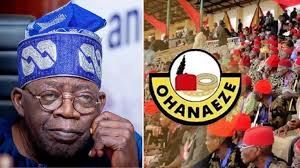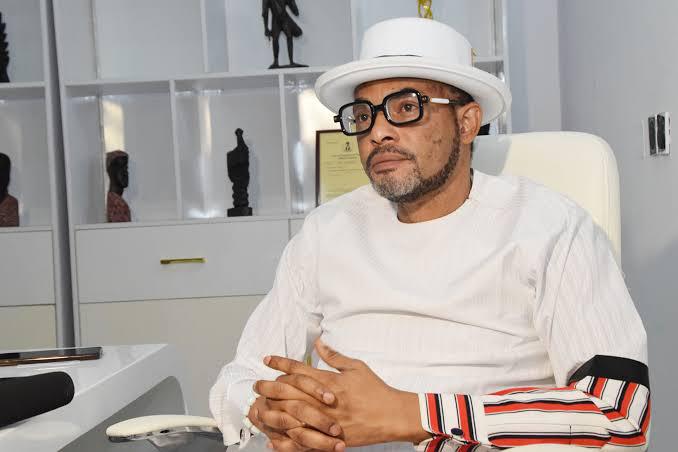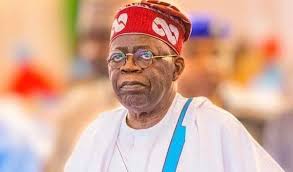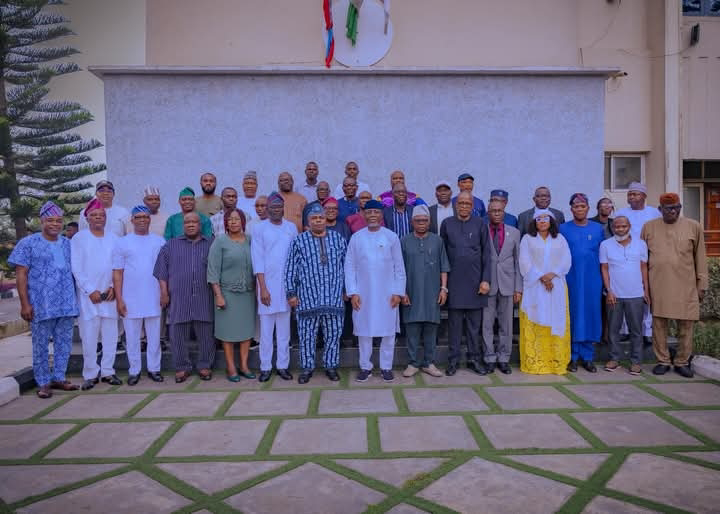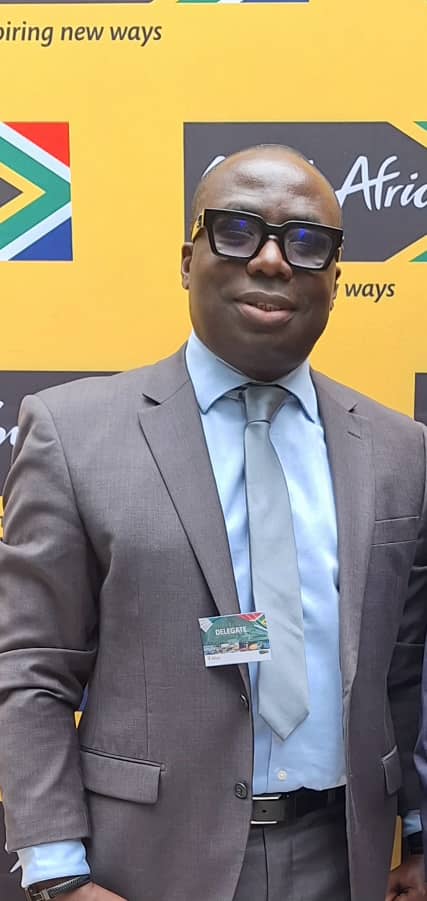In a significant development that has sparked widespread discussion across Nigeria’s political landscape, the apex Igbo socio-cultural organization, Ohanaeze Ndigbo, has announced that no Igbo candidate will contest the presidency in the 2027 general elections against incumbent President Bola Ahmed Tinubu. The group, in a statement issued over the weekend in Abakaliki, Ebonyi State, and signed by its Deputy President General, Mazi Okechukwu Isiguzoro, and National Spokesman, Thompson Ohia, revealed that this decision was reached following extensive consultations with Southeast political leaders, including members of the Imeobi and Nzukoumunna councils. Ohanaeze Ndigbo emphasized that the dream of an Igbo presidency is a realistic and compelling goal, but one that is more likely to be achieved in 2035, not 2027. The organization identified Senator David Umahi, the Minister of Works, as the most outstanding candidate to lead the charge for an Igbo presidency within the All Progressives Congress (APC) in 2035, signaling a strategic shift in the region’s political aspirations.
This announcement comes at a time when Nigeria’s political dynamics are increasingly shaped by regional considerations, ethnic balancing, and power rotation debates. Ohanaeze’s decision to back President Tinubu’s re-election bid in 2027 and defer the Igbo presidency ambition to 2035 reflects a calculated approach to navigating the complex interplay of Nigeria’s multi-ethnic politics. The statement also underscores the organization’s commitment to fostering unity, building strategic alliances, and prioritizing long-term political objectives over short-term gains. By endorsing Tinubu and highlighting Umahi as a leading contender for 2035, Ohanaeze Ndigbo is laying the groundwork for a unified Igbo agenda that seeks to position the Southeast as a central player in Nigeria’s political future.
The Context of Ohanaeze’s Decision
Nigeria’s political landscape has long been characterized by a delicate balance of power among its diverse ethnic groups, with the presidency often rotating between the northern and southern regions to maintain national cohesion. The Southeast, predominantly inhabited by the Igbo ethnic group, has historically been underrepresented in the presidency, with only a brief period under Dr. Nnamdi Azikiwe, Nigeria’s ceremonial president during the First Republic, as a notable exception. This perceived marginalization has fueled calls for an Igbo presidency, with Ohanaeze Ndigbo serving as a leading voice in advocating for the region’s inclusion in the nation’s highest office.
The 2023 election of President Bola Ahmed Tinubu, a Yoruba from the Southwest, marked the continuation of southern presidency following the eight-year tenure of President Muhammadu Buhari, a northerner. However, debates about power rotation have intensified, with some arguing that the presidency should return to the North in 2027, while others advocate for the Southeast to produce the next president. Ohanaeze’s decision to forego a presidential bid in 2027 reflects a pragmatic acknowledgment of the current political realities, including Tinubu’s incumbency and the APC’s dominance in national politics. By aligning with Tinubu’s re-election campaign, Ohanaeze aims to build goodwill and strengthen alliances with other regions, paving the way for a stronger Igbo candidacy in 2035.
The organization’s statement also highlights the importance of the APC as the “most practicable political vehicle” for achieving an Igbo presidency. This marks a significant departure from previous elections, where prominent Igbo candidates, such as Peter Obi of the Labour Party in 2023, ran on platforms outside the APC. Ohanaeze’s endorsement of the APC as the preferred platform for 2035 underscores the organization’s belief that aligning with the ruling party offers the best chance of success, given its national reach and political influence.
The Abakaliki Declaration: Key Points and Implications
The statement issued by Ohanaeze Ndigbo in Abakaliki is a comprehensive articulation of the organization’s vision for the Igbo presidency and its broader political strategy. Signed by Mazi Okechukwu Isiguzoro and Thompson Ohia, the statement reflects the outcome of a crucial meeting with Southeast political leaders, including representatives from the Imeobi (the highest decision-making body of Ohanaeze) and Nzukoumunna (a coalition of Igbo stakeholders). The key points of the statement are as follows:
No Igbo Candidate in 2027: Ohanaeze Ndigbo categorically stated that no Igbo candidate will contest the presidency in 2027 against President Tinubu. This decision signals a rejection of a one-term bid for Tinubu, who is eligible to seek re-election under Nigeria’s constitution, which allows for a maximum of two four-year terms. By opting not to field a candidate, Ohanaeze is prioritizing national unity and strategic positioning over immediate political ambition.
Support for Tinubu’s Re-election: The organization pledged its “unwavering support” for Tinubu’s re-election in 2027, projecting that approximately 95% of Igbo votes will rally behind the incumbent president. This bold commitment reflects Ohanaeze’s desire to build bridges with the APC and strengthen ties with other regions, particularly the Southwest, which Tinubu represents.
2035 as the Target Year for Igbo Presidency: Ohanaeze identified 2035 as the most viable year for the Southeast to produce Nigeria’s president. The organization anticipates that the rotation of power will revert to the North in 2031, following the conclusion of Tinubu’s tenure. By 2035, Ohanaeze believes the Southeast will be well-positioned to make a compelling case for an Igbo presidency, provided the zoning formula is altered to favor the region.
Senator David Umahi as the Leading Candidate: Among a distinguished list of Igbo leaders, Ohanaeze singled out Senator David Umahi as the most outstanding candidate for the presidency in 2035. Umahi, currently the Minister of Works, was praised for his extensive record of achievements as a former governor of Ebonyi State, Chairman of the Southeast Governors Forum, and a serving senator and minister. His leadership experience and track record were highlighted as key qualifications for leading Nigeria.
Other Notable Igbo Leaders: While Umahi was presented as the frontrunner, Ohanaeze also acknowledged a robust lineup of Igbo leaders with the potential to lead Nigeria. These include Peter Obi, former Governor of Anambra State and 2023 Labour Party presidential candidate; Ifeanyi Okowa, former Governor of Delta State; Senator Pius Anyim, former Senate President; Senator Hope Uzodinma, Governor of Imo State; Professor Chukwuma Soludo, Governor of Anambra State; Senator Rochas Okorocha, former Governor of Imo State; Senator Ken Nnamani, former Senate President; Senator Orji Uzor Kalu, former Governor of Abia State; and Senator Chimaroke Nnamani, former Governor of Enugu State. This diverse pool of candidates underscores the depth of leadership talent in the Southeast.
Strategic Alliances and the APC: Ohanaeze emphasized that the pursuit of an Igbo presidency depends on forging strategic alliances with Nigeria’s diverse ethnic groups. The organization identified the APC as the most viable platform for achieving this goal, given its national structure and influence. This strategic alignment reflects Ohanaeze’s recognition that the Igbo presidency cannot be achieved in isolation but requires collaboration with other regions and political stakeholders.
The implications of Ohanaeze’s declaration are far-reaching. By endorsing Tinubu’s re-election and deferring the Igbo presidency to 2035, the organization is signaling a long-term strategy that prioritizes patience, coalition-building, and political pragmatism. The decision to back the APC also suggests a shift in the Southeast’s political orientation, which has historically leaned toward opposition parties like the Peoples Democratic Party (PDP) and, more recently, the Labour Party. This move could reshape the region’s political landscape, fostering greater integration with the ruling party and potentially increasing the Southeast’s influence within the APC.
Senator David Umahi: The Case for a Leading Candidate
Ohanaeze’s endorsement of Senator David Umahi as the most qualified contender for the Igbo presidency in 2035 is a significant aspect of the statement. Umahi, a prominent figure in Nigerian politics, has built a reputation as a results-oriented leader with a track record of transformative achievements. As the former governor of Ebonyi State, Umahi oversaw significant infrastructural development, including the construction of roads, bridges, and public facilities, earning him accolades as one of Nigeria’s most effective governors. His tenure as Chairman of the Southeast Governors Forum further demonstrated his ability to foster regional cooperation and advocate for the interests of the Igbo people.
As the Minister of Works under President Tinubu’s administration, Umahi has continued to make his mark, overseeing critical infrastructure projects that are central to Nigeria’s economic development. His experience as a senator and his current role in the federal cabinet have equipped him with a deep understanding of national governance, making him a formidable candidate for the presidency. Ohanaeze’s decision to highlight Umahi as the leading contender reflects a strategic choice to rally behind a candidate with a proven track record and broad appeal across Nigeria’s diverse regions.
However, Ohanaeze’s acknowledgment of other Igbo leaders, such as Peter Obi, Ifeanyi Okowa, and Chukwuma Soludo, demonstrates the organization’s recognition of the depth of talent within the Southeast. These individuals bring a range of experiences, from governance and policy-making to business and academia, positioning the region as a powerhouse of leadership potential. By presenting a unified front and identifying Umahi as the frontrunner, Ohanaeze is laying the groundwork for a cohesive Igbo agenda that can resonate with Nigerians from all walks of life.
The Political Strategy: Building Alliances and Trust
Ohanaeze’s statement emphasizes the importance of forging strategic alliances and establishing mutual trust with Nigeria’s diverse ethnic groups. The organization recognizes that the Igbo presidency cannot be achieved through regionalism alone but requires collaboration with other regions, particularly the North, Southwest, and South-South. By pledging support for Tinubu’s re-election in 2027, Ohanaeze is signaling its willingness to work within the broader framework of Nigerian politics, prioritizing national unity over parochial interests.
The choice of the APC as the preferred platform for the Igbo presidency is a strategic one. The APC, as Nigeria’s ruling party, commands significant resources, influence, and a national structure that spans all six geopolitical zones. By aligning with the APC, Ohanaeze aims to position the Southeast as a key player within the party, increasing the region’s visibility and influence in national politics. This move also reflects a pragmatic acknowledgment of the challenges faced by opposition candidates, as demonstrated by Peter Obi’s strong but ultimately unsuccessful bid in the 2023 elections.
However, the decision to align with the APC is not without risks. The Southeast has historically been a stronghold of opposition parties, and some Igbo voters may view Ohanaeze’s endorsement of Tinubu and the APC as a departure from the region’s political identity. To mitigate this, Ohanaeze must engage in extensive grassroots mobilization to build support for its strategy and communicate the long-term benefits of aligning with the ruling party. This will require transparent communication, inclusive consultations, and a commitment to addressing the concerns of Igbo voters.
Challenges and Opportunities
Ohanaeze’s declaration presents both challenges and opportunities for the Igbo presidency agenda. One of the primary challenges is the need to maintain unity within the Southeast, where political affiliations and ideologies vary widely. The region is home to a diverse array of political actors, from APC stalwarts like Umahi and Uzodinma to opposition figures like Obi and Soludo. Ensuring that these leaders work together toward a common goal will require deft leadership and a shared commitment to the Igbo presidency project.
Another challenge is the need to sustain momentum over the next decade, as 2035 is a distant target. Political dynamics in Nigeria are fluid, and unforeseen events could disrupt the power rotation cycle or alter the zoning formula. Ohanaeze must remain vigilant and adaptable, ready to adjust its strategy in response to changing circumstances. This includes building strong relationships with other ethnic groups and political stakeholders to ensure that the Igbo presidency remains a viable proposition in 2035.
Despite these challenges, the opportunities presented by Ohanaeze’s strategy are significant. By aligning with Tinubu and the APC, the Southeast has an opportunity to strengthen its position within the ruling party, potentially securing key appointments and resources that can benefit the region. The endorsement of Umahi as the leading candidate also provides a focal point for the Igbo presidency agenda, rallying support around a figure with a proven track record and national appeal.
Moreover, Ohanaeze’s emphasis on strategic alliances opens the door to broader collaboration with other regions. By building trust and fostering dialogue with the North, Southwest, and other geopolitical zones, the Southeast can position itself as a unifying force in Nigerian politics, capable of bridging divides and promoting national cohesion. This approach could also pave the way for greater economic and infrastructural development in the Southeast, as the region leverages its political influence to secure federal support.
The Broader Implications for Nigeria
Ohanaeze Ndigbo’s declaration has far-reaching implications for Nigeria’s political future. By endorsing Tinubu’s re-election and deferring the Igbo presidency to 2035, the organization is contributing to the ongoing debate about power rotation and ethnic representation in Nigeria. The decision to prioritize national unity over immediate regional ambition reflects a mature and strategic approach to politics, one that seeks to balance the interests of the Southeast with the broader goal of national stability.
The statement also underscores the importance of leadership in shaping Nigeria’s future. By highlighting Umahi and other Igbo leaders as capable of catalyzing transformative change, Ohanaeze is making a compelling case for the Southeast’s readiness to lead the nation. This message resonates beyond the Igbo community, challenging other regions to recognize the contributions of Igbo leaders to Nigeria’s development.
Furthermore, Ohanaeze’s call for strategic alliances and mutual trust has the potential to reshape Nigeria’s political culture. In a country often divided by ethnic and regional rivalries, the organization’s emphasis on collaboration and inclusivity offers a model for how to navigate the complexities of multi-ethnic governance. By building bridges with other regions, the Southeast can play a central role in fostering a more united and prosperous Nigeria.
Conclusion: A Vision for 2035
Ohanaeze Ndigbo’s announcement marks a pivotal moment in the Southeast’s quest for the presidency. By deferring the Igbo presidency to 2035 and endorsing President Tinubu’s re-election in 2027, the organization is adopting a long-term strategy that prioritizes unity, coalition-building, and political pragmatism. The identification of Senator David Umahi as the leading candidate, supported by a formidable roster of Igbo leaders, underscores the depth of talent in the Southeast and the region’s readiness to lead Nigeria.
As Nigeria navigates the complexities of its political future, Ohanaeze’s declaration serves as a call to action for all stakeholders—Igbo leaders, political parties, other ethnic groups, and the broader Nigerian populace—to work together toward a more inclusive and equitable nation. The road to 2035 will not be without challenges, but with strategic planning, sustained engagement, and a commitment to unity, the Southeast can achieve its dream of producing Nigeria’s first president of Igbo descent. This vision, rooted in hope and collaboration, has the potential to transform Nigeria’s political landscape and usher in a new era of leadership and development.


